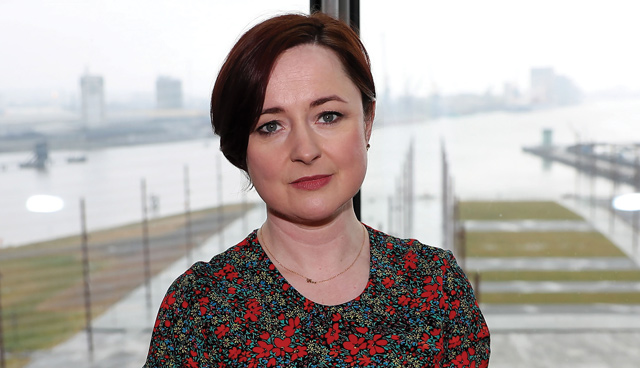Covid-19: Mental health impact

Newly appointed interim Mental Health Champion for Northern Ireland Siobhán O’Neill highlights the longer lasting mental health impacts of Covid-19 and says that now is a good time to think about what our pandemic story will be.
It has certainly been quite the year for mental health in Northern Ireland. In January 2020 the New Decade, New Approach agreement saw the restoration of the Executive, and brought the promise of a Mental Health Action Plan for Northern Ireland. The Plan was delivered by the Department of Health in May and included various commitments to tackle issues such as suicide prevention, crisis intervention and the development of a 10-year strategy to overhaul mental health services.
One of the actions in the plan was the establishment of a Mental Health Champion to “to champion and enhance mental health in all aspects of public life”. In July I was asked to adopt the role on an interim basis until the appointment process was complete.
I am excited by the opportunity to build on my 20-year career as an academic, to create impact and meaningful change for people across Northern Ireland. Since then I have been working with the support of a small highly motivated team to establish the Mental Health Champion’s Office.
The role coincided with the publication of the first waves of data on the impact of the Covid pandemic on the mental health of the population.
As predicted, large proportions of the population experienced significant acute stress and anxiety as we entered the first lockdown. Whilst the majority of people returned to pre-lockdown states of contentment, evidence was emerging of the potentially longer lasting mental health impacts on particular groups. These groups include people who had been infected with Covid-19, children and young people, people living in poverty and deprivation and people with existing mental illness or risk factors.
“Lost jobs and businesses are a significant cause of poor mental health and it is vital that we work to reduce the economic impact, and give back, by supporting our local businesses.”
The pandemic has lasted longer than many had hoped, and several outstanding issues require attention to protect vulnerable populations. Many people in care homes have been unable to have visits from loved ones. Several key health services, and services for people with disabilities continue to be suspended. Children and young people face uncertainty and stress about their examinations. Lockdown and restrictions have brought significant stress and pressure to whole communities, and the pressure is being felt acutely across the business and hospitality sectors. Lost jobs and businesses are a significant cause of poor mental health and it is vital that we work to reduce the economic impact, and give back, by supporting our local businesses.
Many are facing a more isolated and lonely winter and we all need to redouble our efforts to protect our wellbeing. We should retain those social connections with loved ones and build those in as an important element of our daily lives.
Physical activity is also essential, and it is important that we make time for any form of movement, such as walking, wheeling, or even dancing, to rebalance and reduce the effects of stress. We should consider how we can use this time to learn or give back in some way, and increase our focus on the things that are good in our own lives, whilst reducing our exposure to unhelpful media.
There is much room for hope, so now is a good time to think about what our pandemic story will be, what will get us through and what we will most appreciate when the time comes that we can mix again safely.
Professor Siobhán O’Neill is on 80 per cent secondment from her current post as Professor of Mental Health Sciences at Ulster University.





